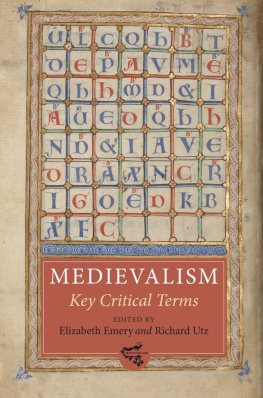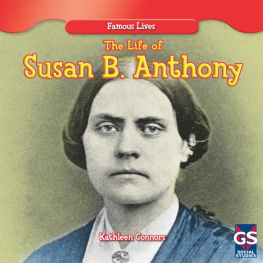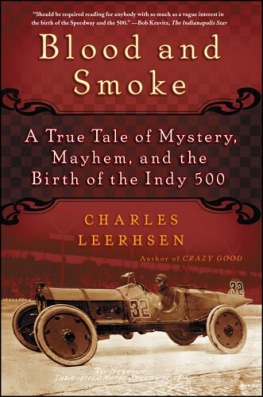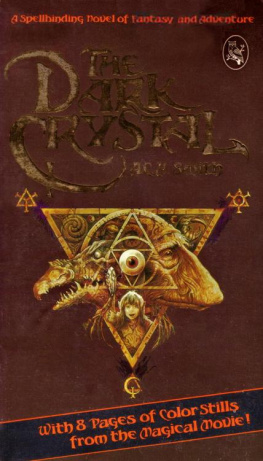Anthony Burns -A History
Charles Emery Stevens
Contents:
Anthony Burns - A History
Preface.
Chapter I. The Arrest.
Chapter II. The Attack On The Court House.
Chapter III. The Writ Of Personal Replevin.
Chapter IV. The Attempt To Purchase Burns.
Chapter V. The Examination.
Chapter VI. The Arguments.
Anthony Burns - A History, C. E. Stevens
Jazzybee Verlag Jrgen Beck
86450 Altenmnster, Loschberg 9
Germany
ISBN:9783849643799
www.jazzybee-verlag.de
www.facebook.com/jazzybeeverlag
admin@jazzybee-verlag.de
Anthony Burns - A History
Preface.
THE extradition of Anthony Burns as a fugitive slave was the most memorable case of the kind that has occurred since the adoption of the Federal Constitution. It was memorable for the place and for the time of its occurrence; the place being the ancient and chief seat of Liberty in America, and the time being just the moment when the cause of Liberty bad received a most wicked and crushing blow from the hand of the Federal Government. It was memorable also for the difficulty with which it was accomplished, for the intense popular excitement which it caused, for the unexampled expense which it entailed, for the grave questions of law which it involved, for the punishment which it brought down upon the head of the chief actor, and for the political revolution which it drew on. Viewing it thus, it seemed to me to merit an elaborate record; and as unusual facilities were furnished me, I ventured upon the task.
My materials have been derived chiefly from original sources. Of much that is narrated, I was myself an eye-witness. I was present at the Faneuil Hall meeting from its commencement to its close, and I witnessed the attack on the Court House. Throughout the trial of Burns, save a short interval, I had a seat within the bar, and carefully observed the arrangements made by the Marshal, and the demeanor of the various parties. While the troops were drawn up on the Common, on the second of June, I passed up and down the lines, and took note of their conduct. Afterward, on the same day, I traversed that section of the city from which the citizens were excluded by force of martial law, and noticed the manner in which the troops and the police were disposed for the purpose of guarding the streets and avenues. Finally, I stood upon the steps of the Custom House, when the Marshal with his posse and prisoner passed on his way to the wharf, and witnessed the assault of the soldiers, with sabres and bayonets, on the defenceless and unoffending multitude.
The account of the early life of Burns, of his arrest, of his voyage back to Virginia, of his imprisonment, and of his sojourn in North Carolina, was taken down by me from his own lips, soon after his return to Boston. For placing full confidence in his statements, the reader has the warrant of his former master, Col. Suttle, who, after his return to Alexandria, bore testimony to the truthfulness and honesty of Burns in a letter which is now first printed in this volume. I may add that he has no less warrant from all who have known Burns.
The true history of the transactions respecting the Writ of Replevin is here for the first time made public. It is drawn chiefly from a correspondence (still in manuscript) which passed between Governor Washburn and the Hon. Samuel E. Sewall, shortly after the rendition of Burns. For the use of this correspondence I am indebted to the courtesy of Governor Washburn. Some additional facts have been derived from the officer who was charged with the service of the writ.
The Rev. L. A. Grimes bore a large share in the transactions here narrated, and I have relied chiefly upon his authority in recounting such matters as came within his personal cognizance. This remark is likewise applicable to Mr. Joseph K. Hayes, who was a captain of the Boston police until the second of June, and acted a conspicuous part on that day. My acknowledgments are also due to Richard H. Dana, Jr., Esq., and Charles M. Ellis, Esq., for important documents, and for information besides.
The account of the evidence and the arguments on the examination, is abridged from the reports published at the time. The chapter relating to the trial of the Commissioner is based on facts of public notoriety, on documents published by authority of the General Court of Massachusetts, and on the original records of that body deposited in the State House.
The Appendix contains various authentic documents which are authority for certain statements in the narrative, and are otherwise illustrative of the subject. Among them are copies of letters written by District Attorney Hallett and Marshal Freeman, and on file in the office of the clerk of the Courts, at Dedham.
The Illustrations are from drawings made on the spot, by an artist who was an eye-witness of the principal scene. Adequately to depict that scene--presenting to view, as it did, tens of thousands of spectators--was impossible on a page of this size; but the picture here given will greatly assist the reader in forming a distinct conception of it. The edifices introduced into the sketches will be readily identified.
At the beginning of the volume will be found a transcript from the ancient Records of Massachusetts. The contrast between the transaction therein recorded and that presented in this narrative, will suggest its own impressive lesson. Immediately following, is a declaration of the Higher Law in the incomparable sentences of the great Roman Orator and Moral Philosopher.
As I write these lines, the country is passing through its greatest crisis of peril. On the western frontier, civil war is flagrant. At Washington, a Senator lies wounded and disabled, having been stealthily stricken down on the floor of the Senate, for words spoken in debate, by a member of the House from South Carolina. The whole South, with trifling exceptions, applauds this assault upon the representative of a sovereign State. A National Convention of the party in power has just given its sanction to the policy of which these events, as well as the extradition of Burns, are the legitimate fruits, and has nominated for the Presidency a person who has pledged himself fully to enforce that policy. Should that person be elected, and that policy be enforced, the cause of Freedom, whether in Kansas, in Washington, or in Massachusetts, would have just reason to apprehend a repetition of similar assaults from the slave power. To avert such a calamity every good citizen must labor; and I hope. that this History, conceived and executed for a more general purpose, may contribute somewhat also to that, particular end.
BOSTON, July, 1856.
Chapter I. The Arrest.
IN the evening of the twenty-fourth of May, 1854, Anthony Burns was arrested as a fugitive slave in the heart of Boston. He had been employed, during the day, in a clothing store situated in Brattle street, and belonging to Coffin Pitts, a respectable colored trader. The locality was peculiarly suggestive of liberty and human rights. In full view, at the distance of only three or four rods, stands Brattle street Church, imbedded in the front face of which is a cannon-ball, preserved as a sacred memento of the Siege of Boston. A little farther off, but also in full view, stands Faneuil Hall. The street itself, an ancient one, perpetuates the name of one of the most enlightened friends of liberty that in the early days assisted in building up the Commonwealth of Massachusetts. In this favored locality Burns had passed exactly one month of quiet freedom, spent in honest industry, when the sudden interruption of his happiness took place.












